Living with obesity isn’t always just about weight. It can also increase your risk of cardiovascular disease, including heart attack, stroke, or even death.
Work with a health care professional to manage your weight and improve your risk factors for heart disease. In one study, people who partnered with a health care professional lost 5 times more weight than those who did it alone. Find a treatment plan that can work for you.
Obesity and heart disease risk factors
Living with obesity increases the risk of developing cardiovascular disease. This includes heart disease and potentially life-changing events such as heart attack and stroke.
Work with a health care professional to manage your weight and improve your risk factors for heart disease. People who partner with a health care professional can lose 5 times more weight compared to doing it alone. Find a treatment plan that can work for you.
Ask a health care professional how to manage weight.
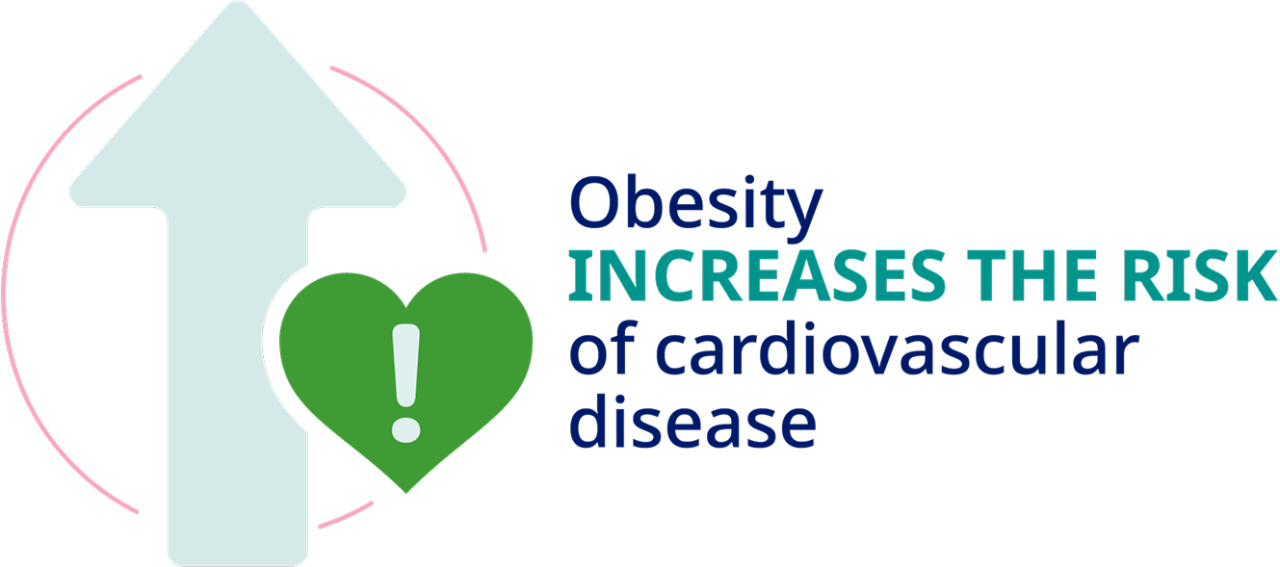
Help manage weight and heart disease risk factors
Living with obesity and risk factors for heart disease can feel overwhelming. But losing excess weight could lead to lower blood pressure, improvements in cholesterol, and improvements in blood sugar. Talk to your health care professional about how weight management could be a part of your cardiovascular disease risk factor treatment plan.
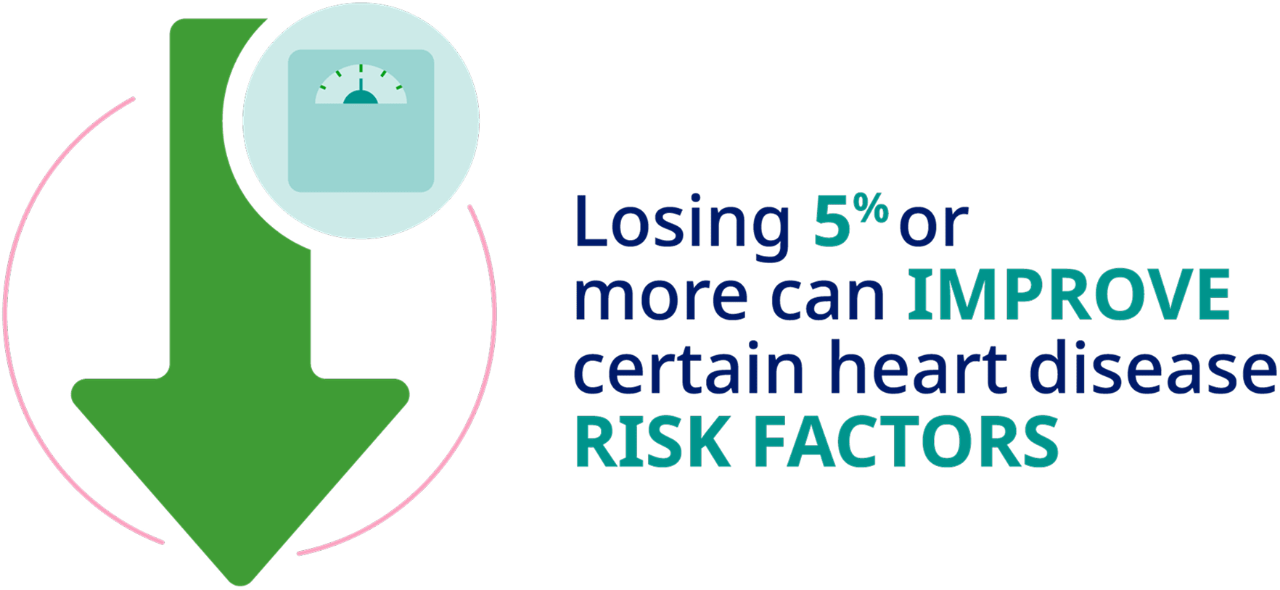
Improve blood pressure
Blood pressure is a measurement of blood against blood vessels. Hypertension occurs when your blood pressure is too high. Over time, high blood pressure can cause the blood vessels leading to the heart to harden and narrow, making flow more difficult.
For people with obesity and high blood pressure, losing 5%-15% or more of body weight may help lower blood pressure.
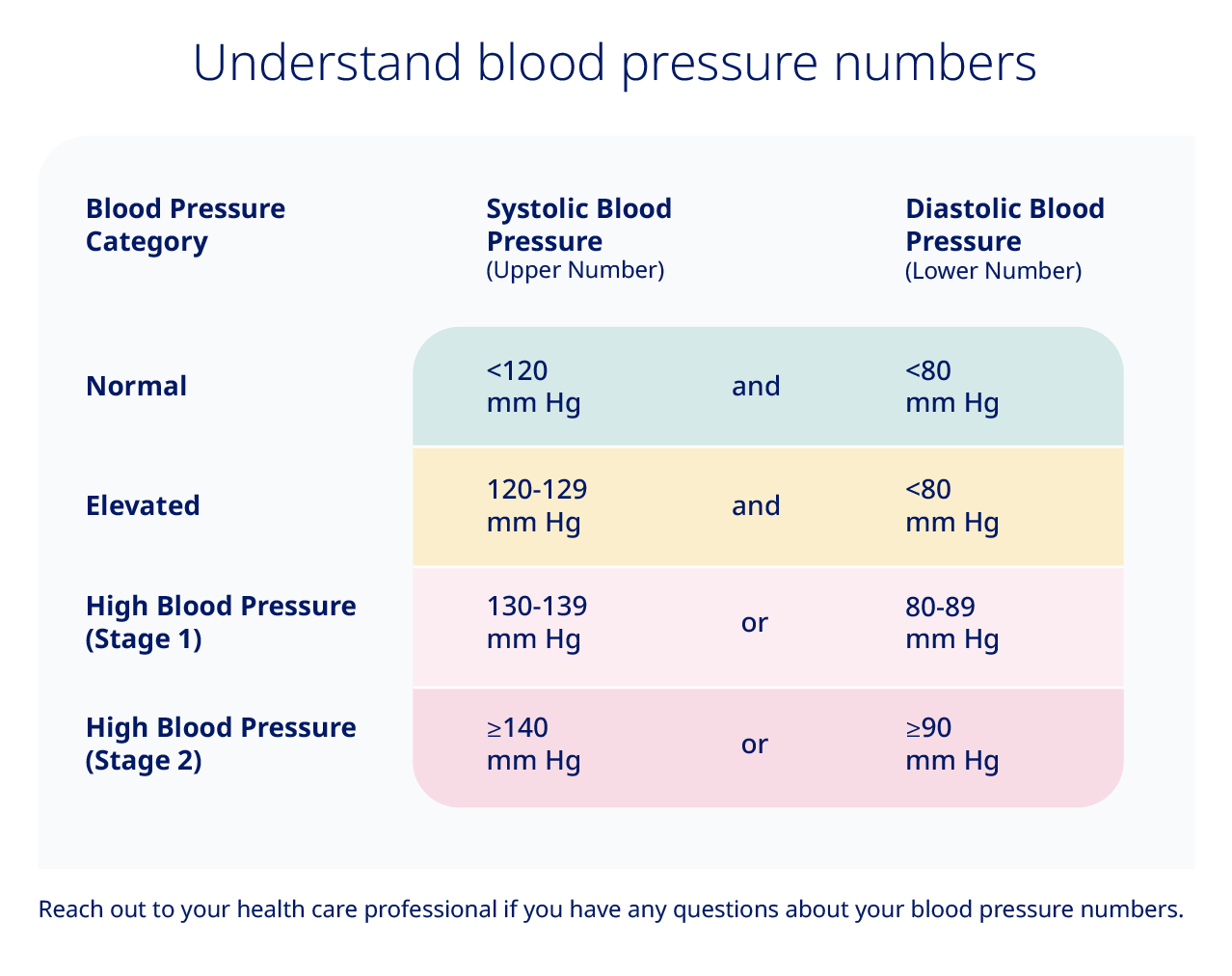
Improve cholesterol
Cholesterol is a waxy substance found in the blood. There are both good and bad kinds of cholesterol.
Low-density lipoprotein (LDL) cholesterol is sometimes called “bad” because high levels of LDL can form plaque and block blood flow to the heart.
High-density lipoprotein (HDL) cholesterol is sometimes called “good” cholesterol. HDL helps remove other forms of cholesterol from your bloodstream.
Triglycerides are a common type of fat that help store excess energy. When combined with high LDL cholesterol and low HDL cholesterol, this can lead to fatty buildup in the arteries.
Losing 5%-15% or more of body weight can improve these levels.
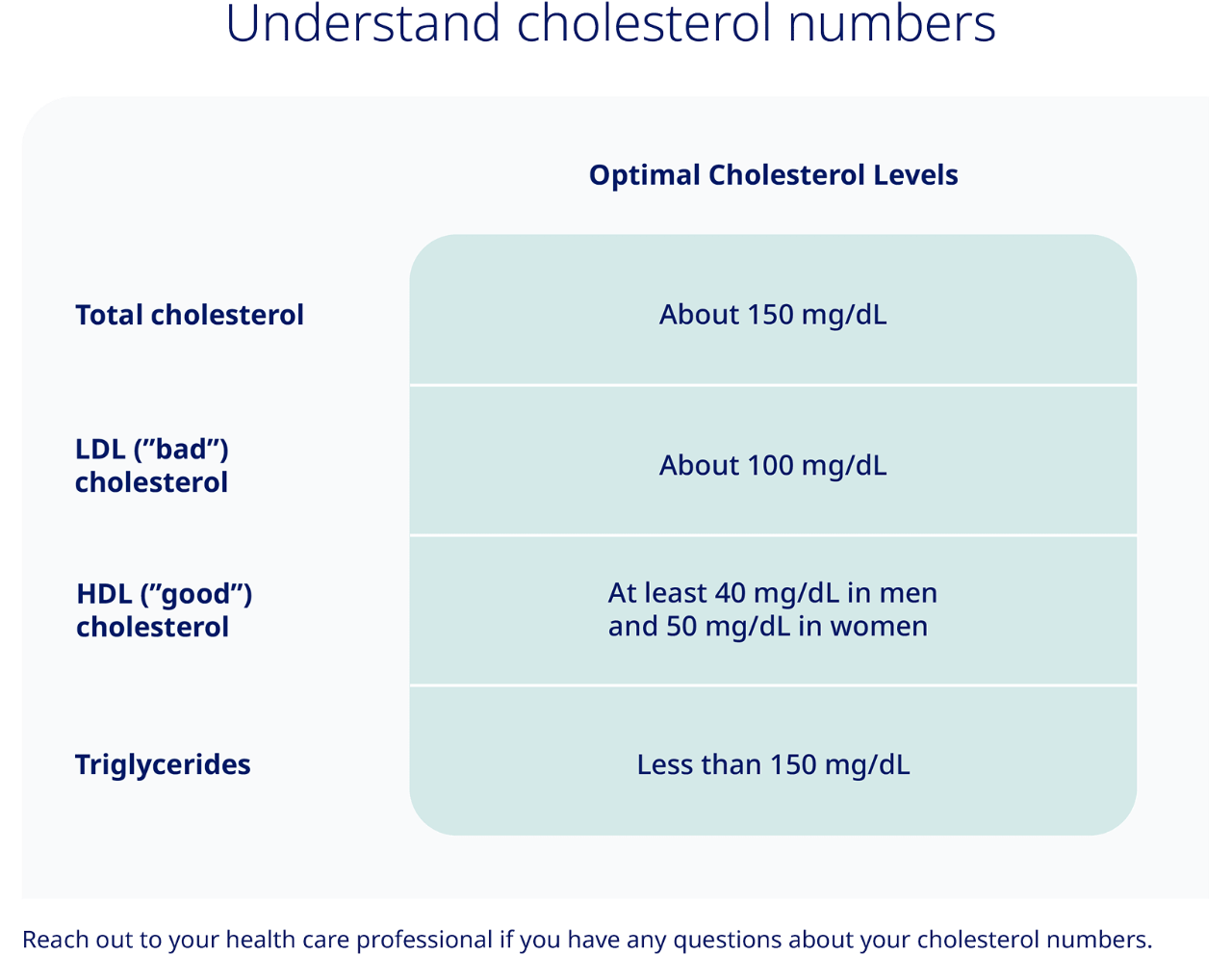
Improve blood sugar
The body uses glucose, or sugar, as a source of energy. Living with obesity may be associated with elevated blood sugar, which can lead to prediabetes. In prediabetes, blood sugar levels are consistently higher than normal. Prediabetes can progress to type 2 diabetes.
For people with excess weight and type 2 diabetes, losing at least 2.5% of body weight can help improve blood sugar levels.
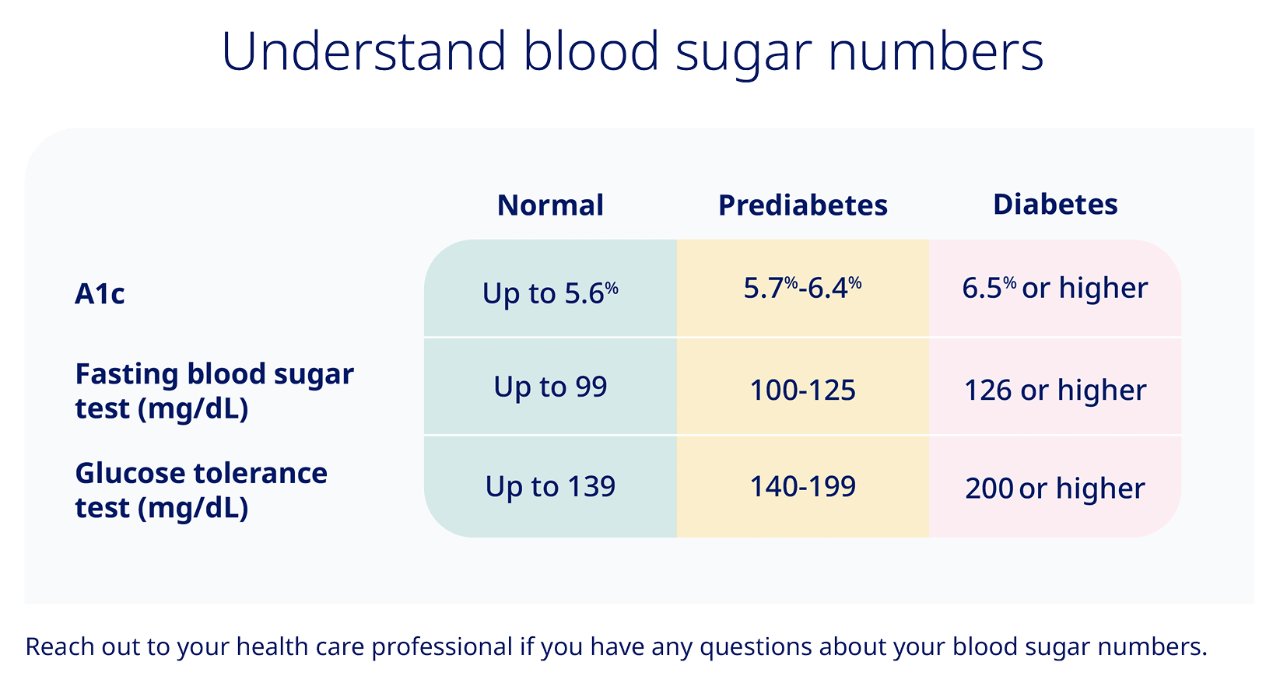
How do I know if I have obesity?
Obesity is defined by having a body mass index (BMI) of 30 or more. BMI is a calculation that compares your weight to your height: (weight [lb] / height [in]2) x 703. When you visit a health care professional, they will measure your weight. That's a good time for you to ask about your BMI and how it might affect your risk factors for heart disease. Learn more about BMI.
Living with obesity may be linked to an increased risk of having a second heart attack or dying due to heart disease. According to one study, that risk may be 50%-80% higher, depending on the BMI.
I’m Maija, and this is my truth about weight. I’ve been living with obesity my whole life. When I had my first heart attack, you know, I didn’t realize that obesity can lead to cardiovascular disease, you know, it can lead to heart attacks, it can lead to stroke. I didn’t know that. And knowing that I have cardiovascular disease, I am living with obesity I need to know what my risk factors are and what I can do to live a healthy lifestyle. It’s work, you know, it’s—it’s a relationship with yourself and your body. And I believe in really encouraging myself, you know, looking in the mirror and saying, you know,
“You did good today. Good job.”
I’m happy, I’m able to tell my story, and I want to stay on this ride and be here for it.
After having a heart attack at age 34, Maija learned about the connection between cardiovascular disease and obesity.
The potential effects of cardiovascular disease
It’s important to know that excess weight can lead to cardiovascular disease. Obesity increases the risk of death and other forms of cardiovascular disease, including:
Stroke
An ischemic stroke, the most common type, is when a blood vessel to the brain gets blocked, usually by a blood clot. When the blood supply to part of the brain is cut off, brain cells can become damaged.
Heart attack
A heart attack occurs when the blood flow to a part of the heart is blocked. This blockage can cut off blood flow to part of the heart, causing damage.
Coronary heart disease
Coronary heart disease is the leading cause of death in the United States and is the most common type of heart disease. Someone has coronary heart disease when the arteries of the heart can’t get enough oxygen and blood to the heart due to a buildup of plaque.
Heart failure
Heart failure happens when the heart isn’t pumping blood as well as it should. This means blood and oxygen can’t get to where it’s needed in the body. Heart failure can worsen if left untreated.
Atherosclerosis
Atherosclerosis is when plaque, a buildup of cholesterol, forms on the walls of the arteries. This can lead to a heart attack or stroke.
Atrial fibrillation
Atrial fibrillation is the most common type of arrhythmia or irregular heartbeat. An irregular heartbeat can include the heart beating too fast, too slow, or inconsistently.

Start the conversation
Not sure how to ask about weight management? Our step-by-step guide helps you document your weight history, current efforts, and future goals. Complete your report and take it to a health care professional.




